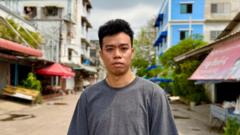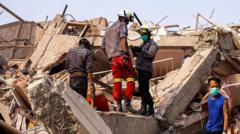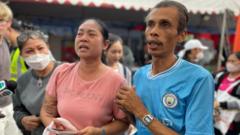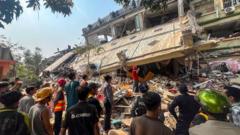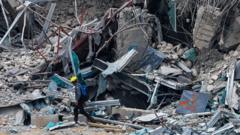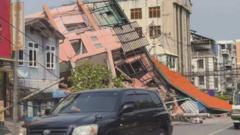Following a significant earthquake, fears of political change circulate in Myanmar as citizens ponder the impact on the ruling military junta, compounded by decades of conflict and superstition.
Earthquake Triggers Speculations of Regime Change in Myanmar

Earthquake Triggers Speculations of Regime Change in Myanmar
A devastating earthquake in Myanmar leaves over 1,000 dead, igniting discussions about the future of the military junta amid local superstition and turmoil.
The dust from the catastrophic earthquake that struck Myanmar on March 28, 2025, continues to settle, and with it, a haunting question emerges among its people: could this tremor, which has claimed the lives of at least 1,000 souls, signal a shift in the power dynamics of the nation’s military junta? The timing of the earthquake—a day after the junta celebrated its 80th Armed Forces Day with a grand parade in Naypyidaw—has not gone unnoticed, stirring speculation and fear.
In a nation where authoritarian rule stifles free expression, many look to omens to interpret events around them. Since the military forcibly took control four years ago, Myanmar has become increasingly isolated and steeped in superstition. Among the varied interpretations of natural disasters, local folklore suggests that a significant earthquake in March portends the downfall of regimes.
As the junta faces mounting pressure, the epicenter of this recent quake struck Mandalay, the country's second-largest city, which is a bastion for the military’s rule but has also suffered immensely. Daw Marlar Myint, an 89-year-old former school principal, reflected on her experiences, asserting, "We have a saying that a massive earthquake like this is nature’s way of punishing a cruel and corrupt ruler." Her sentiments echo the belief that the natural world’s fury would likely signal reckoning for leaders like Min Aung Hlaing.
As the nation grapples with the aftermath of destruction, both physical and psychological, the intertwining of natural disasters and regime stability is thrust to the forefront of public consciousness. In a land often dictated by fear and uncertainty, hope springs from tradition and the belief that nature might indeed hold the ultimate power over the fate of the junta.



